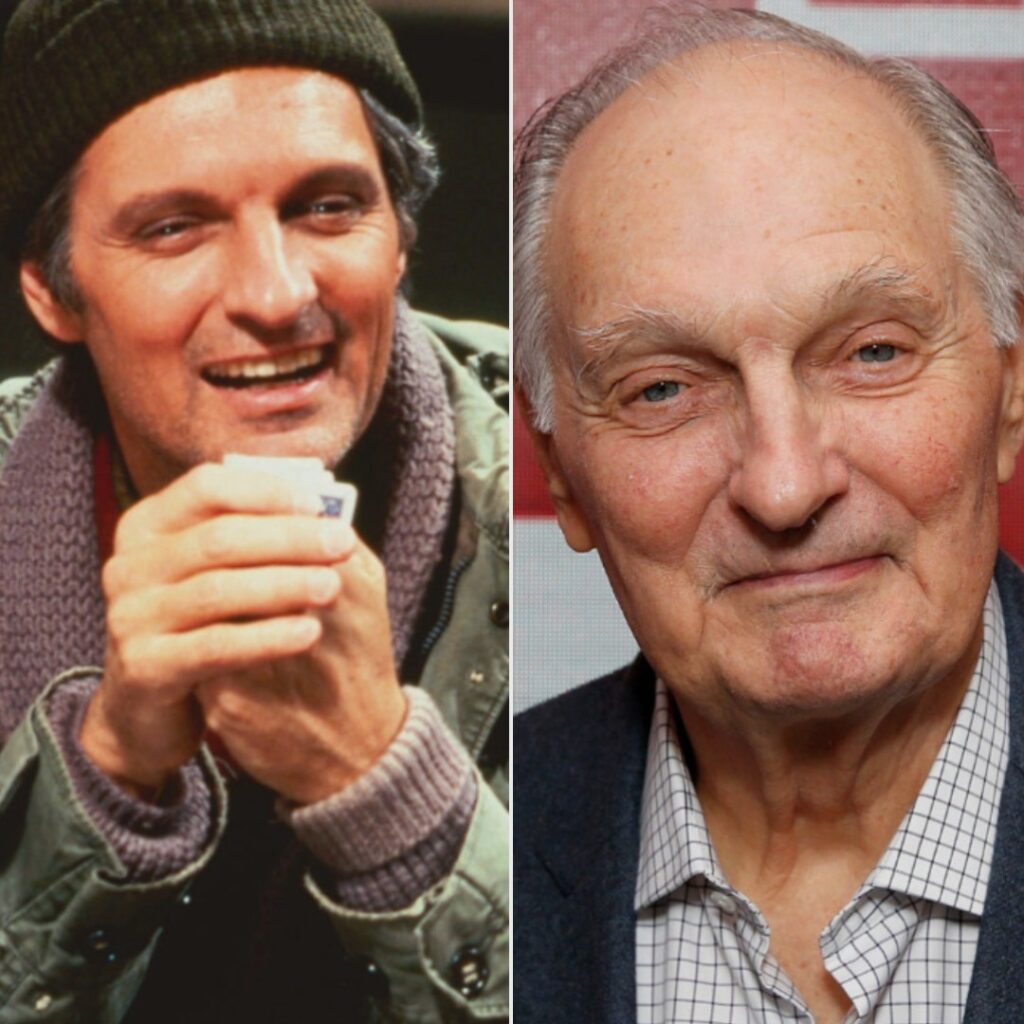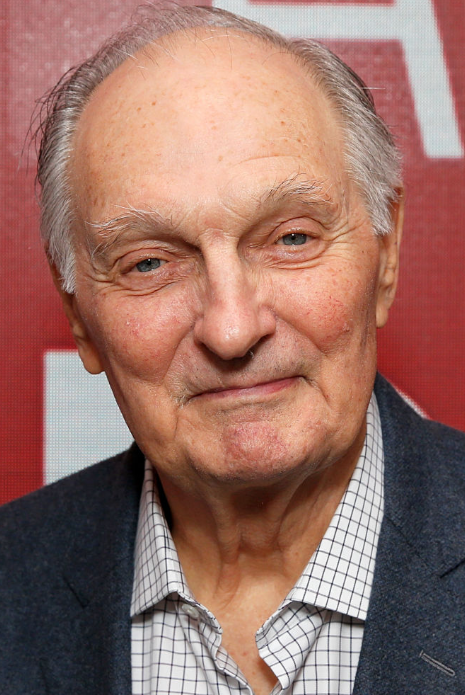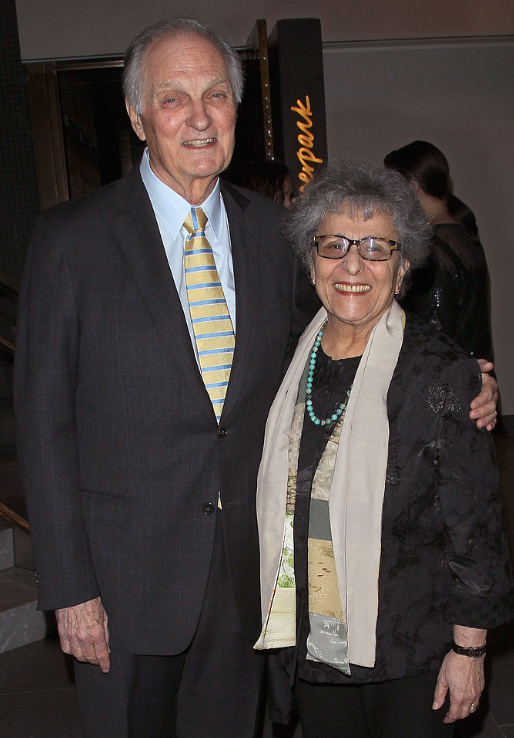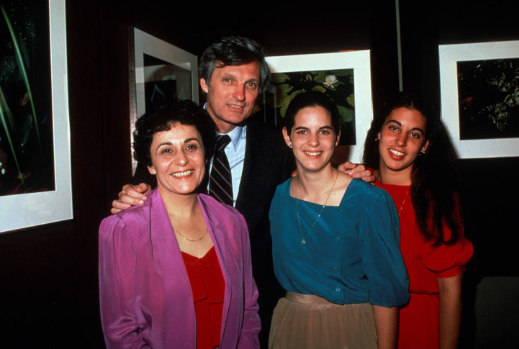
Iconic ‘MAS*H’ Actor Alan Alda Triumphs Over Childhood Struggles, Faces Parkinson’s Battle
Regarded as a Hollywood icon for his iconic portrayal of Hawkeye Pierce in the beloved TV series “MAS*H,” Alan Alda is celebrated not just for his acting prowess but also for triumphing over significant childhood challenges on his path to success.
The 86-year-old actor, director, and writer gained international acclaim for his role as the witty and wise Dr. Benjamin Franklin “Hawkeye” Pierce in the enduring TV show. Despite his enduring success, Alda now faces the battle against Parkinson’s disease, sharing insights into the significant challenges posed by the condition.

“MAS*H,” a wartime comedy-drama that aired from 1972 to 1983, stands among the highest-rated shows in U.S. television history, with its final episode ranking as one of the most-watched finales of any TV series.
Alan Alda’s contributions to the show earned him six Golden Globe awards for Best Actor in a Television Series. Despite his showbiz roots, Alda’s childhood was marked by upheavals, struggles, and trauma, beginning in his early years.

Born in the Bronx in 1936, Alan spent his formative years traveling across the United States with his parents, who supported his father’s career as a performer in burlesque theaters. His father, Robert Alda, was an actor and singer, while his mother, Joan Browne, was a homemaker and former beauty pageant winner.
In his memoir, “Never Have Your Dog Stuffed — and Other Things I’ve Learned,” Alda revealed the challenges of his childhood, with his father frequently away for work, and his mother grappling with mental health issues. Mental illness was a taboo topic in the 1940s and 1950s, leaving families to navigate it alone due to limited resources.
Reflecting on his childhood, Alda expressed the missed opportunity for his father and himself to face his mother’s illness together, sharing strategies and support. Instead, they dealt with it separately.

One traumatic childhood memory Alda recounted occurred at the age of six. He stayed up with his mother while his father was working late. When his father returned home, an argument ensued, leading to Alan’s mother accusing him of infidelity. The confrontation escalated, with Alan’s mother attempting to stab his father with a paring knife. In a pivotal moment, Alan intervened, grabbing the knife and preventing harm by ramming it into the table, bending its point.
Despite the challenges and traumas he faced during his unconventional childhood, including witnessing burlesque shows from a young age and making a stage debut as a baby, Alan Alda overcame adversities and went on to become a Hollywood treasure.
At the age of seven, Alan was diagnosed with polio, a life-threatening disease. The onset of the illness included symptoms such as a stuffy nose, vomiting, unsteady legs, and a stiff neck. After spending two weeks in the hospital, he underwent six months of painful therapy involving hot towel wraps to enhance blood flow and combat muscle weakness associated with polio.
The treatment proved successful, and Alan made an astonishing recovery with no lingering effects from the disease. His childhood was marked by constant travel as his father, a burlesque performer, sang with a traveling troupe. Alan often watched raunchy shows from a young age, becoming familiar with the burlesque environment.

In his memoir, Alan recounted an unconventional publicity stunt orchestrated by his father when he was two years old. Photographed holding a tobacco pipe, the image was meant to generate publicity for the burlesque club. Alan’s chaotic upbringing included exposure to the entertainment world, but he excelled academically, studying English at Fordham University and joining an improv comedy group.
Alan officially began his career in 1959 with his Broadway debut in “Only in America.” His film debut followed in 1963 with “Gone Are the Days.” He continued to feature in multiple Broadway shows and movies before achieving widespread recognition for his role as Hawkeye Pierce in “MAS*H.”
Throughout his career, Alan earned critical acclaim for his roles in films like “Same Time, Next Year,” and he received an Academy Award nomination for Best Supporting Actor in 2004 for his performance in “The Aviator.” He also had recurring roles in TV shows such as “The West Wing” and “30 Rock.”

Alan Alda’s journey from a tumultuous childhood to Hollywood stardom reflects his resilience, talent, and ability to overcome obstacles on the path to success.
Alan Alda’s personal life is as much a triumph as his successful Hollywood career. Married to musician, photographer, and writer Arlene Weiss since 1957, the couple has celebrated 65 years of a happy marriage.
Their love story began at a Manhattan party, where Arlene, a student at Hunter College, caught Alan’s attention when she played Mozart on the clarinet. A few weeks later, during a dinner invitation from a mutual friend, a memorable incident involving a falling rum cake solidified their connection. As the cake crashed to the floor due to the shaking refrigerator, Alan and Arlene were the only ones who decided to indulge in it, sharing a laugh and realizing they were a perfect match.

Despite the challenges and sacrifices, including Arlene giving up her musical career to prioritize their marriage, the couple’s humor and shared laughter have been the foundation of their enduring relationship. Alan emphasized that a key to their long marriage is having a “short memory,” according to his wife. They support each other in their respective endeavors, with Alan expressing pride in Arlene’s work as a writer and photographer.

Arlene has been a pillar of support for Alan, especially since he was diagnosed with Parkinson’s disease in 2015. Their enduring love and mutual encouragement continue to define their remarkable journey together.
Alan Alda and his wife Arlene Weiss are proud parents to three daughters: Elizabeth, Beatrice, and Eve. While Elizabeth and Beatrice initially pursued acting, their careers eventually took different paths. Elizabeth transitioned into becoming a special education teacher, while Beatrice became a director.
One of Alan’s most enjoyable professional experiences was working on the 1981 movie “The Four Seasons.” He wrote, directed, and acted in the film, and two of his daughters were part of the cast, with his wife serving as the photographer.

In 2015, Alan Alda received a diagnosis of Parkinson’s disease, a progressive nervous system disorder. The diagnosis came after he recognized symptoms related to REM sleep behavior disorder, where individuals physically act out their dreams while asleep. Despite the challenges of the disease, Alan has chosen not to let it define his life.
Alan remains active, participating in activities such as boxing, tennis, and marching to music, as these have shown benefits for individuals with Parkinson’s. He emphasizes the importance of adapting and finding workarounds in the face of uncertainty.

In addition to his physical activities, Alan keeps himself busy with a podcast titled “Clear+Vivid with Alan Alda.” He approaches life with a mindset of adapting, adjusting, and revising. While Parkinson’s presents challenges, Alan continues to live a full life and remains focused on slowing the progression of the disease.
“Tying shoelaces can be a challenge with stiff fingers. Think of playing the violin while wearing mittens,” he told People.
A lot of people think that a Parkinson’s diagnosis is the same as a death sentence, but according to Alda, that’s far from the truth. Parkinson’s doesn’t directly kill people with the condition.

“It’s a common reaction to get depressed, and it’s really not necessary. I mean, it can get really bad, but your life isn’t over. You don’t die from it, you die with it,” he told Wall Street Journal.
Juggling fatherhood, a cruel disease, a healthy marriage, and a Hollywood career can’t be easy but this inspirational star has managed it.
Please share this story with all the ‘MASH’ fans you know.


